TSA: Total Security Abyss By Michelle Malkin
While a TSA agent pawed my hair bun this weekend, presumably on high alert for improvised explosive bobby pins, I pondered the latest news on the Somalia airplane terror attack.

While a TSA agent pawed my hair bun this weekend, presumably on high alert for improvised explosive bobby pins, I pondered the latest news on the Somalia airplane terror attack.

Politicians tailor their messages to different audiences. Facing New Hampshire's primary, Ted Cruz talked more about "free-market principles" and a "commitment to the Constitution" and said "no one personality can right the wrongs done by Washington." Politico ran the headline "Ted Cruz, born-again libertarian."

Why does the mainstream media heap such scorn and disbelief on Donald Trump over his promise to build a great wall along the border with Mexico — and make Mexico pay for it? After all, Donald Trump has built a winning presidential campaign — and made the media pay for it.

The morning of the New Hampshire primary, Donald Trump, being interviewed on "Morning Joe," said that he would welcome his "friend" Michael Bloomberg into the presidential race.
Which is probably the understatement of 2016.
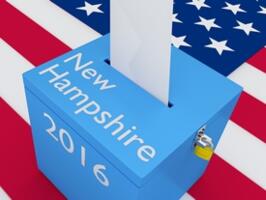
Donald Trump and Bernie Sanders, as most polls projected, were the winners of the Republican and Democratic primary battles in New Hampshire, but where their respective parties go from here are two very different stories.
Consider Rasmussen Reports’ latest look at the Republican race nationally which we published on Monday. Trump still holds a double-digit lead over his closest rivals for the nomination. Senators Ted Cruz and Marco Rubio are in a virtual tie for second place. Ohio Governor John Kasich, the second-place finisher in New Hampshire, earns six percent (6%) of the national GOP vote.
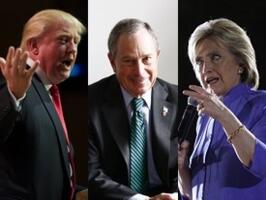
Former New York Mayor Michael Bloomberg has made it official that he is considering entering this year’s presidential race as an independent. Early polling suggests a Bloomberg candidacy would be good for Donald Trump and bad for Hillary Clinton.

Benning Wentworth is not a name you'll run across in New Hampshire primary coverage. But he arguably did as much as anyone else to establish the political culture -- or cultures -- of America's first-in-the-nation primary state.
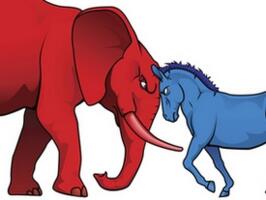
With the primary process finally underway, both Republicans and Democrats are more confident that the ideological leanings of their party's eventual presidential nominee will match theirs.

Last week, we wrote that Bernie Sanders and Donald Trump are the favorites to win New Hampshire, and while there have been plenty of fireworks between then and now (Monday afternoon), our overall assessment hasn’t changed. Polling in the New Hampshire primary is often far off the mark — the electorate has a remarkably high number of late-deciders and switchers — but keep this in mind: Trump has appeared strong in New Hampshire for more than half a year. Since mid-July, he has led 72 straight polls, almost all of them showing a double-digit lead. And since early January, Sanders has led 38 straight polls, with most also showing a double-digit lead.

During this election year, we are destined to hear many words that are toxic in the way they misrepresent reality and substitute fantasies that can win votes.

Twenty-eight percent (28%) of Likely U.S. Voters think the country is heading in the right direction, according to a new Rasmussen Reports national telephone survey for the week ending February 4.

Voters still don’t see President Obama or the Republican-controlled Congress as an asset to their respective party’s presidential candidate, but GOP voters are far more likely to see their party’s legislators as a burden on the party’s nominee.
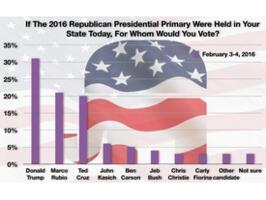
With tomorrow’s New Hampshire primary a make-or-break event for several of the candidates, Donald Trump still holds a double-digit lead nationally over his rivals for the Republican presidential nomination. Senators Ted Cruz and Marco Rubio are in a virtual tie for second place.
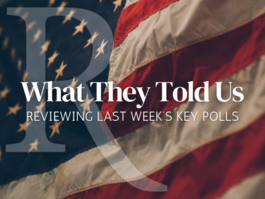
Tuesday’s New Hampshire primary could sharply redefine the Republican race, but our polling suggests a Bernie Sanders win in the Granite State won’t remake the contest for the Democratic presidential nomination.

Last week, I handicapped the Bernie Sanders campaign. He since pulled off an upset in the Iowa Caucus, where he overcame a 40-point lead by Hillary Clinton to a virtual tie so even that coin tosses and bureaucratic incompetence may have made a difference.
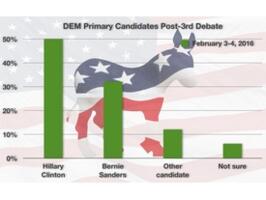
And then there were two. Following a near-tie in the Iowa caucus Monday, Hillary Clinton and Bernie Sanders went toe-to-toe last night in a debate in New Hampshire, the setting of next week’s primary. Have the dynamics of the race changed?

Now that the results of last Monday's Iowa caucuses are in, speculation naturally turns to next Tuesday's New Hampshire primary.
Will Donald Trump fail once again to receive the percentage he's getting in polls? Will Marco Rubio build on his close third-place Iowa finish to overshadow rivals Jeb Bush, John Kasich and Chris Christie, who have been rivaling him in New Hampshire polls?

Donald Trump won more votes in the Iowa caucuses than any Republican candidate in history.
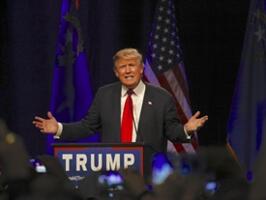
Donald Trump insists his second-place showing in Monday’s Iowa caucus isn’t bad, but perception among his fellow Republicans that he will be the party’s presidential nominee has fallen sharply this week.

Voters remain pessimistic about America's future and continue to believe cutting the size of the federal government may help.